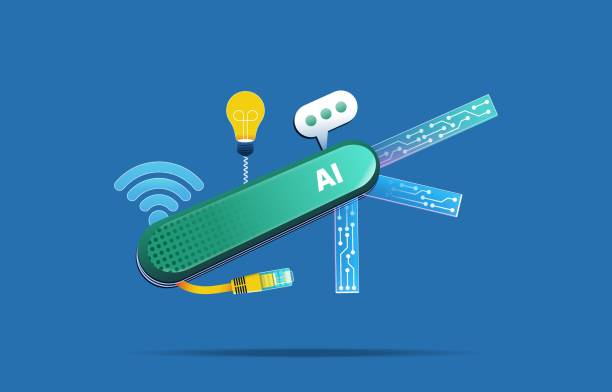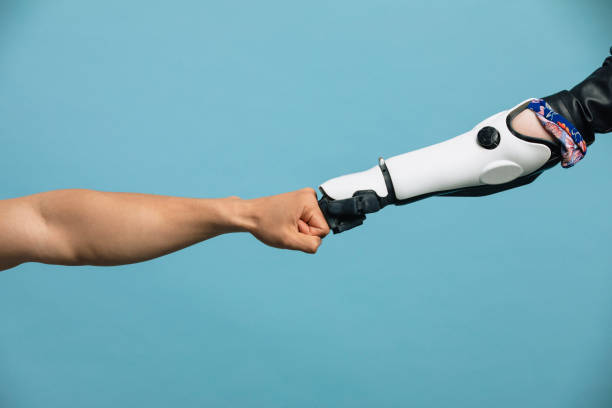Artificial Intelligence is reshaping healthcare by enabling faster diagnoses, personalized treatments, and better patient management. Its applications have expanded rapidly, creating new possibilities in 2025. Healthcare providers now leverage AI for clinical decision-making and data analysis. This technology enhances the accuracy and efficiency of healthcare systems globally.
AI-powered tools assist in interpreting complex medical data, improving treatment planning. The integration of AI with traditional healthcare practices is becoming seamless. Patients experience faster, more accurate diagnoses thanks to AI algorithms. This revolution in healthcare marks a significant leap forward in medical technology.
Healthcare professionals are increasingly adopting AI to augment their expertise. AI’s ability to analyze vast datasets contributes to better disease prediction. The technology also streamlines administrative tasks, freeing up more time for patient care. The future of healthcare depends heavily on the continued development of AI systems.
2. AI in Medical Imaging
Medical imaging has benefited tremendously from AI advancements. AI algorithms can detect anomalies in X-rays, MRIs, and CT scans faster than humans. This improves early detection of diseases like cancer and neurological disorders. The accuracy of AI-based image analysis surpasses traditional methods, reducing diagnostic errors.
AI enhances image clarity and assists radiologists in interpreting complex images. It also enables 3D modeling for surgical planning and better visualization. Automated image analysis speeds up workflows and helps manage large volumes of patient scans. Consequently, AI-driven imaging leads to more precise and timely interventions.
By reducing human error, AI improves patient safety during imaging procedures. It can highlight areas of concern that may be missed during manual reviews. AI’s integration in imaging technology is revolutionizing diagnostic radiology. This trend will continue growing as AI algorithms become more sophisticated.
3. AI-Powered Diagnostics
AI is transforming diagnostics through pattern recognition and predictive analytics. It uses large datasets to identify subtle symptoms and disease markers. This helps detect illnesses at early stages when treatments are more effective. AI diagnostics enhance precision, reducing unnecessary tests and invasive procedures.
Machine learning models assist in diagnosing complex diseases like diabetes, cardiovascular disorders, and infectious diseases. These tools analyze patient history, lab results, and genetics to guide clinical decisions. AI-powered diagnostics enable personalized treatment plans tailored to individual patients’ needs. This approach improves recovery rates and patient outcomes.
Automated diagnostic systems also support telemedicine by providing remote analysis. Patients benefit from quicker access to expert opinions regardless of location. AI diagnostics democratize healthcare access, especially in underserved regions. This marks a major shift in healthcare delivery models worldwide.
4. Personalized Medicine with AI
Personalized medicine tailors treatments based on genetic, lifestyle, and environmental data. AI helps analyze this information to develop customized therapies. It identifies the most effective drugs and dosages for each patient. This reduces side effects and improves treatment efficacy.
AI algorithms evaluate vast genomic datasets to predict disease risks and responses. They assist in designing targeted therapies, especially for cancer and rare diseases. Personalized medicine powered by AI transforms care by focusing on the individual rather than a one-size-fits-all approach. This approach increases patient satisfaction and success rates.
The integration of AI in personalized medicine also supports preventive care. By identifying high-risk individuals, AI enables early interventions. Patients benefit from proactive health management rather than reactive treatments. The future of healthcare lies in AI-driven personalized strategies.
5. AI in Drug Discovery and Development
AI accelerates drug discovery by predicting molecular interactions and identifying promising compounds. This significantly reduces the time and cost of bringing new drugs to market. Machine learning models simulate clinical trials, improving the selection of drug candidates. AI also predicts potential side effects and toxicities early in development.
Pharmaceutical companies use AI to analyze biological data and design innovative therapies. This approach helps tackle complex diseases and unmet medical needs. AI enhances collaboration between researchers by sharing insights and datasets globally. Consequently, drug development becomes more efficient and targeted.
The ability of AI to process vast biomedical literature expedites knowledge discovery. This supports continuous innovation in therapeutics. AI-driven drug discovery promises to revolutionize the pharmaceutical industry by making treatments faster and safer. The impact on patient care is profound and ongoing.
6. AI and Robotics in Surgery
Robotic surgery combined with AI allows precise, minimally invasive procedures. Surgeons benefit from AI-assisted planning and real-time feedback during operations. This reduces complications, shortens recovery times, and improves surgical outcomes. AI enhances the dexterity and accuracy of surgical robots.
Robotic systems analyze patient data to customize surgical approaches. AI algorithms also predict potential risks and optimize surgical workflows. This technology expands the possibilities for complex surgeries that were previously difficult or risky. The adoption of AI-driven robotics in surgery is steadily increasing.
Post-surgical monitoring and rehabilitation are improved through AI analytics. Wearable devices collect data to track recovery progress. AI systems alert clinicians to any complications or deviations. This comprehensive approach ensures better patient care from surgery through recovery.
7. AI in Telemedicine
Telemedicine platforms leverage AI to provide remote consultations and diagnostics. AI-powered chatbots and virtual assistants triage patient symptoms and offer guidance. This reduces the burden on healthcare facilities and improves access. Patients receive timely medical advice without physical visits.
AI also supports remote monitoring by analyzing data from wearable health devices. This allows continuous assessment of chronic conditions like diabetes and hypertension. Telemedicine combined with AI ensures personalized care regardless of patient location. It addresses healthcare disparities in rural and underserved areas.
The integration of AI in telehealth enhances patient engagement through personalized reminders and follow-ups. It also streamlines administrative tasks, improving the overall patient experience. AI-driven telemedicine is reshaping how healthcare is delivered worldwide.
8. AI for Predictive Analytics in Healthcare
Predictive analytics uses AI to forecast disease outbreaks, patient deterioration, and hospital admissions. Healthcare providers use these insights to optimize resources and improve preparedness. Early warnings enable preventive measures, saving lives and reducing costs. AI models analyze diverse data sources for accurate predictions.
Hospitals implement AI to manage patient flow and reduce overcrowding. Predictive tools guide staffing and equipment allocation. This improves operational efficiency and patient satisfaction. Healthcare systems become more resilient and responsive to changing demands.
Predictive analytics also helps identify patients at risk of readmission or complications. This supports targeted interventions and personalized care plans. AI’s role in predictive healthcare improves outcomes and reduces unnecessary hospitalizations. This represents a shift toward proactive healthcare management.
9. AI in Mental Health Care
AI is increasingly used to support mental health diagnosis and treatment. Natural language processing analyzes patient speech and writing for signs of depression and anxiety. AI-powered apps offer cognitive behavioral therapy and mood tracking. This improves accessibility to mental health support.
Virtual therapists and chatbots provide immediate assistance and crisis intervention. AI tools identify early warning signs of mental health crises. They facilitate personalized care and connect patients to professional help. Mental health care becomes more scalable and responsive with AI.
Data from wearables and smartphones help monitor emotional well-being. AI detects changes in behavior patterns that may indicate worsening conditions. This enables timely interventions and better patient outcomes. The integration of AI in mental health is transforming care delivery.
10. Ethical Considerations and Challenges
The widespread use of AI in healthcare raises ethical questions about privacy, bias, and accountability. Patient data security must be ensured to maintain trust. AI algorithms should be transparent and free from biases to provide fair treatment. Regulatory frameworks are evolving to address these concerns.
Healthcare professionals need training to understand AI limitations and avoid overreliance. Ethical AI deployment requires collaboration among technologists, clinicians, and policymakers. Patients should be informed about how AI affects their care. Balancing innovation with ethics is critical for sustainable AI use.
Ongoing monitoring and evaluation of AI systems are necessary to detect errors and improve performance. Stakeholders must prioritize patient rights and equitable access to AI benefits. Addressing ethical challenges will determine the long-term success of AI in healthcare.
11. AI and Healthcare Data Management
AI improves the management of healthcare data through automated collection, organization, and analysis. Electronic health records become more accessible and useful for clinicians. AI identifies patterns and insights from large datasets that humans cannot easily detect. This supports evidence-based decision-making.
Data interoperability between systems is enhanced by AI, facilitating seamless information exchange. AI-powered tools reduce administrative burdens by automating documentation and billing processes. This leads to cost savings and improved efficiency. Healthcare providers can focus more on patient care.
The secure handling of sensitive health data is paramount. AI helps detect cyber threats and ensures compliance with privacy regulations. Effective data management enabled by AI drives innovation and improves healthcare delivery. It forms the backbone of modern AI-driven healthcare systems.
12. The Future of AI in Healthcare
The future of AI in healthcare is promising with continued advancements in technology and adoption. AI will enable fully integrated care systems connecting patients, providers, and researchers globally. Precision medicine, early diagnostics, and personalized treatments will become standard.
AI-powered virtual assistants and wearable devices will empower patients to manage their health proactively. Continuous learning AI systems will adapt to new data and improve over time. Collaboration between humans and AI will enhance healthcare outcomes significantly.
Challenges remain, but innovation and ethical implementation will shape a better healthcare future. AI is set to revolutionize how healthcare is delivered, making it more accessible, efficient, and patient-centered. The journey toward AI-powered healthcare is well underway in 2025.











